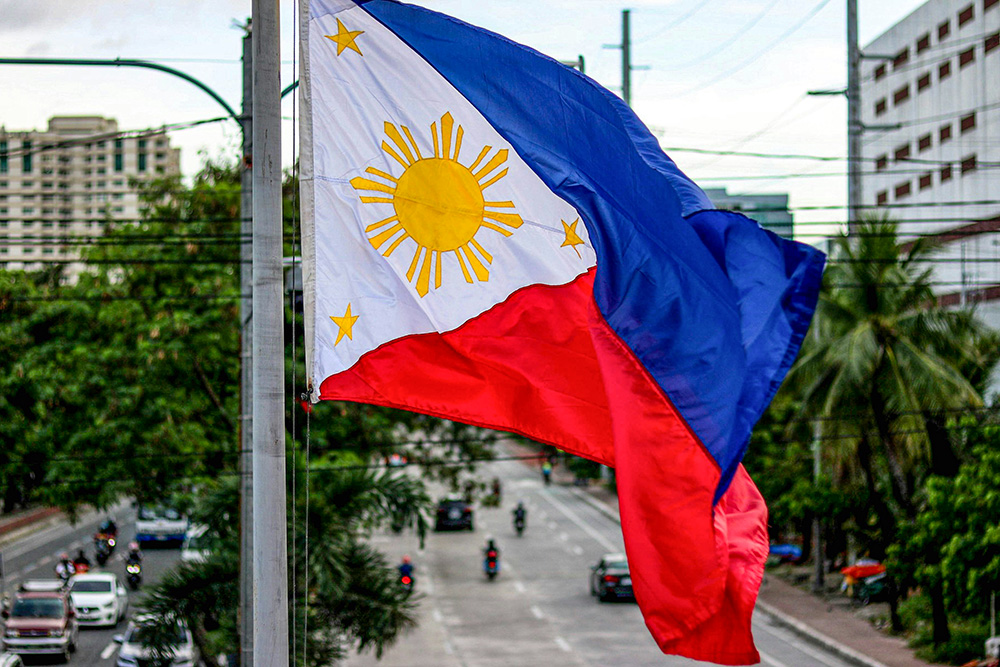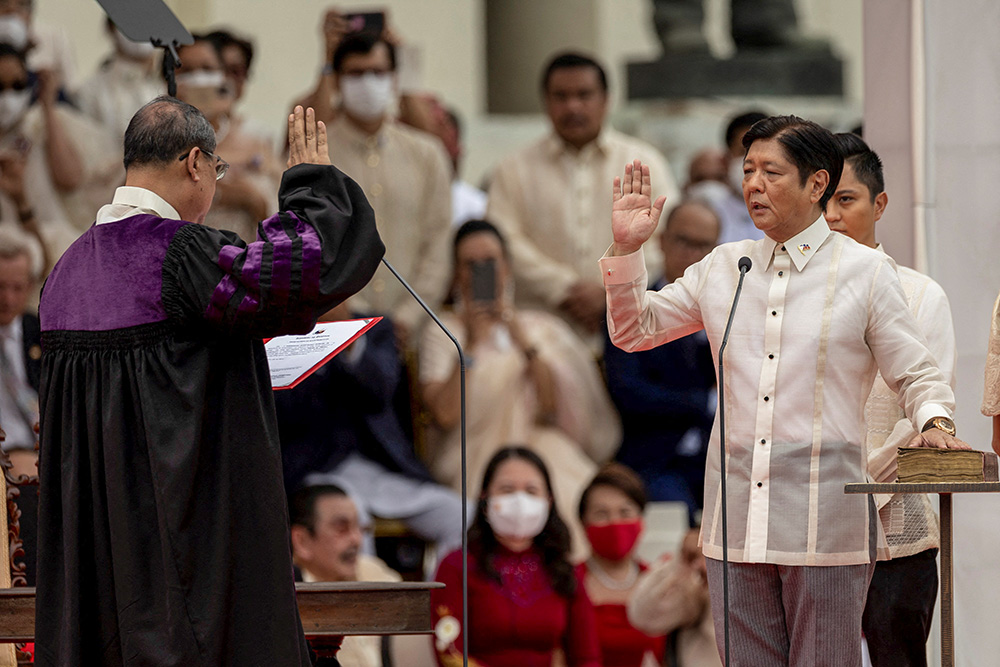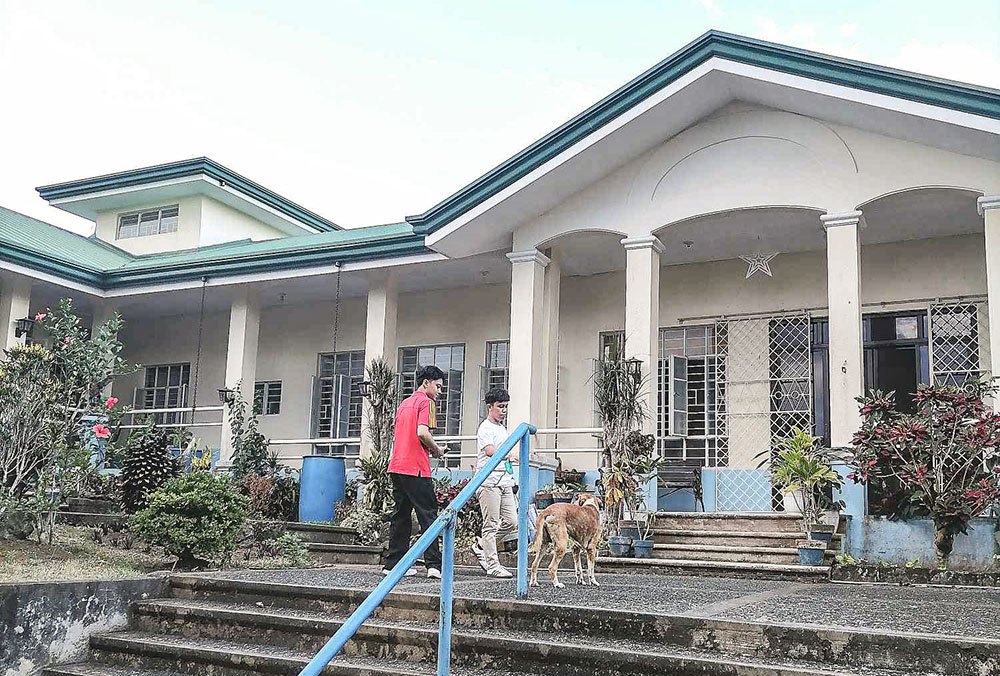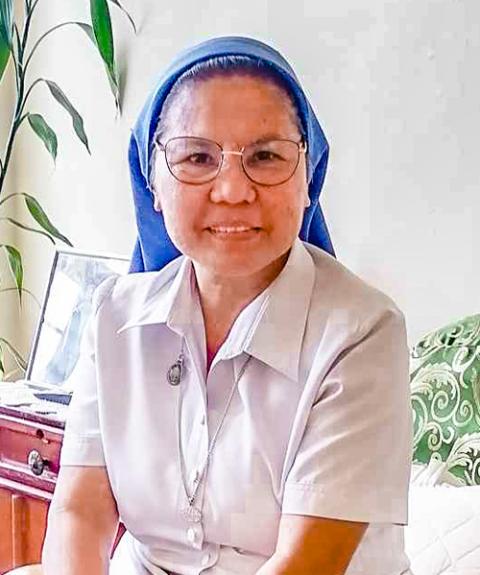
The national flag of the Philippines is seen flying in Manila. (Unsplash/iSawRed)
The Sisters of the Divine Savior in the Philippines are unanimously opposed to a proposed constitutional change on economic provisions, said Sr. Adeline Abamo, the congregation's outgoing regional superior.
On March 6, the House of Representatives adopted a resolution calling for a convention to amend the constitution; the delegates to vote on the resolution will be elected in October, though the constitutional convention still has no date.
Abamo said this initiative under President Ferdinand "Bongbong" Marcos' administration to change the charter lacked integrity. She cited an alleged massive disinformation campaign by the administration to influence public opinion in the 2022 general elections, as well as its failure to deliver on campaign promises.
The disinformation campaign before the elections demonized not only some opposition leaders, but also the church for exposing disinformation itself, Abamo said.
"The priests, nuns and laypeople fear that changing the constitution may eliminate economic protections to favor local and foreign capitalists," she said. "We also fear the protections for workers may get eliminated."
The president, son of former dictator Ferdinand Marcos Sr., said in media reports that he was interested in reforms to the economic provisions in the constitution only, as a way to boost the economy.

Ferdinand "Bongbong" Marcos Jr., the son and namesake of the late dictator Ferdinand Marcos, takes the oath as the 17th president of the Philippines during the inauguration ceremony at the National Museum in Manila June 30, 2022. (CNS/Reuters/Eloisa Lopez)
Earlier this year, however, he said he was interested in political reforms. In the state media Philippine News Agency's report on Jan. 23, Marcos said he was open to amendments in the political provisions of the 1987 constitution, including extending term limits.
Marcos also said in January that he was aware of reports that government benefits were being promised to the public in exchange for the charter campaign signatures.
"We just don't trust a constitutional change under this administration," Abamo said.
Instead of pushing for a charter change, Marcos should win the confidence of the people by prioritizing the issues confronting the poor, she added.
"There's nothing wrong with the present constitution," the nun said. "The problem is with some leaders."
The final draft of the 1987 Philippine Constitution was completed in October 1986, about eight months after Marcos Sr. was ousted by a people's uprising following 21 years in power. It was ratified by a nationwide plebiscite in February 1987.
On Feb. 15, 2024, nuns representing six congregations, as well as bishops and laypeople, signed the "One Faith One Nation One Voice" statement expressing opposition to the move to change the constitution:
We believe that those currently pressing for Charter Change are motivated by self-serving interests for political power and the spoils of cooperation with foreign businesses and investments. We can foresee the imminent danger of power grabs and term extensions. We can feel the manipulations of those who take advantage of ordinary citizens who have not had opportunity to consider what is in their best interest and in the interest of future generations.
The Catholic Bishops' Conference of the Philippines also cautioned the public over the "deceptive" charter change signature campaign. Conference president Pablo Virgilio David, bishop of the Kalookan Diocese, said the proposed change might touch on economic aspects, but the Senate has acknowledged the possibility of broader changes if the amendment is successful.
In the Philippines, the charter can be amended in three ways: through a people's initiative, a constitutional convention or a constitutional assembly.
When the People's Initiative for Reform Modernization and Action, a civic group, failed in its campaign for a charter change in January — following allegations of bribery in getting signatures for the campaign — Sen. Robinhood Padilla filed a resolution on April 28 seeking charter change by way of constitutional convention.
In March this year, a Pulse Asia survey found that 88% of Filipinos did not favor charter change at this time, and 70% said they wouldn't favor the change in the near future either.
The survey also found that most of the respondents did not favor the proposed lifting of foreign ownership restrictions under the 1987 constitution, which currently limits foreign ownership in certain areas (such as manufacturing and distribution of certain products) while prohibiting it in others, including mass media and practice of licensed professions.
Advertisement
Marikina 2nd District Rep. Stella Quimbo, an economist and a member of the opposition Liberal Party, is in favor of reforms in the economic provisions in the charter.
She told the media that a charter change was a "necessary first step" toward economic growth, and that amending the restrictive economic provisions was part of the "long to-do list," including investing in infrastructure, reducing the cost of power, eliminating corruption, reducing red tape, and ensuring the rule of law.
The country would be further left behind if the charter's restrictive economic provisions would not be amended, she said.
Quimbo also argued that a constitutional amendment is "not a free pass" to foreign investors.
"The measure provides flexibility to these economic provisions, but still allows the legislature to address the fear of some of our countrymen that we will be inundated with foreign businesses, to the detriment of local industry," she said.
Surigao del Norte Rep. Robert "Ace" Barbers, a member of Nacionalista Party, also favors charter change.
He said passing economic laws to address the flaws in the charter was an admission that it failed in the past more than 30 years.
But Sr. Ruth Baguinon, another member of the Sisters of the Divine Savior, said she was worried amendments to the economic provisions in the constitution might further allow foreign capitalists to exploit the country's natural resources.

The formation house for the Sisters of the Divine Savior in Silang, Cavite, Philippines (Oliver Samson)
"The constitution should also protect local capitalists, instead of allowing foreigners to have more and more of our country," she said, referring to sand mining operations in the Philippines, in which volumes of sand were hauled by ships off the shore and were suspected of being used by China in creating artificial islands in the contested water between the country and China.
In an interview with GSR at the congregation's house in New Manila, Quezon City, Banguinon lamented overexploitation of the country's natural resources by another country involved in the contested water.
Baguinon also believes there's no need for a constitutional change for the government to curb corruption.
"Some leaders repair roads even if they don't really need a repair," she said. "But they do it to get funds for their election."
"There's a lot of things the government should do for the welfare of the people instead of amending the constitution," she said.
Baguinon favored electoral reform. She said taxpayers' money was wasted in the election of incompetent politicians.
Abamo invited the people to "exercise wisdom" on the pushed charter change.
"Let's not be tempted with money," she said. "Let's not put the future of this nation at risk for an amount that could not even get you a sack of rice."






